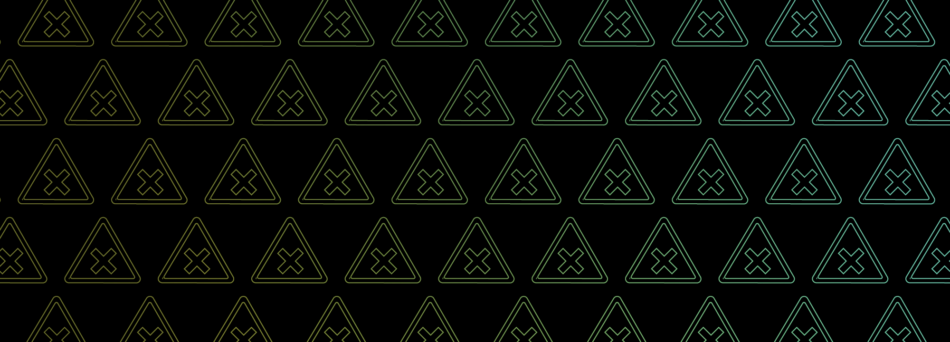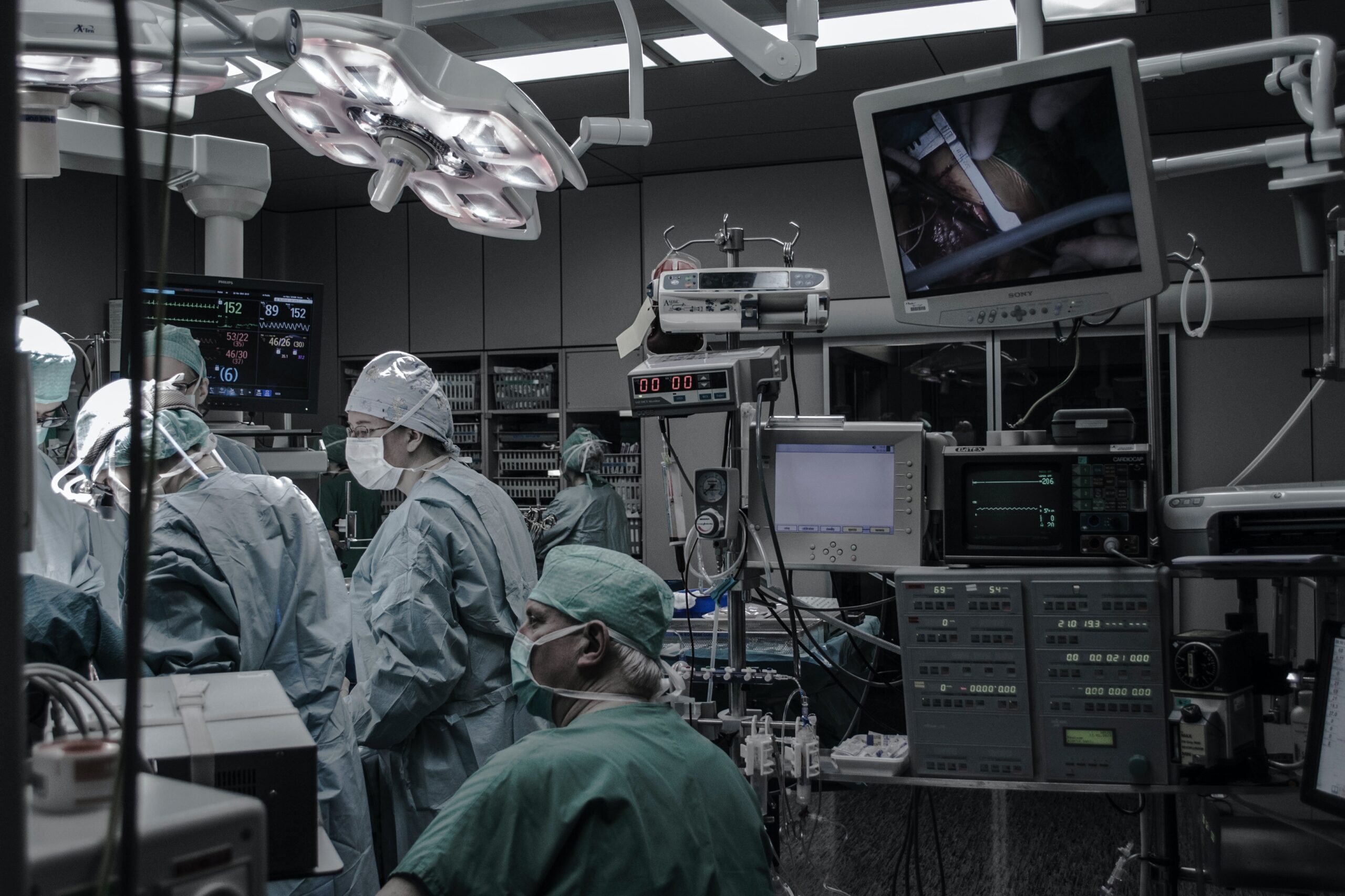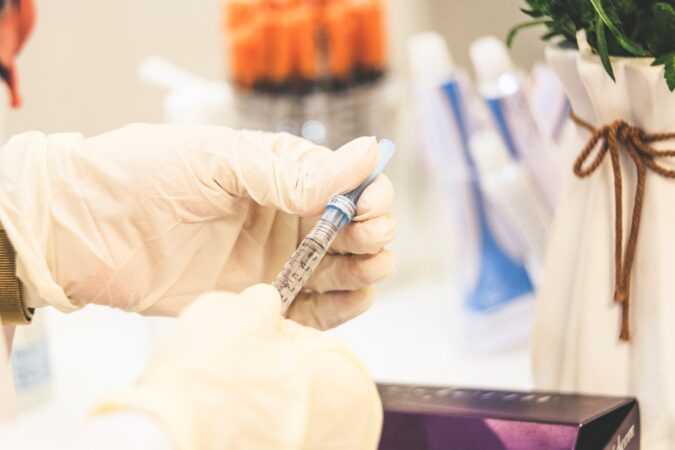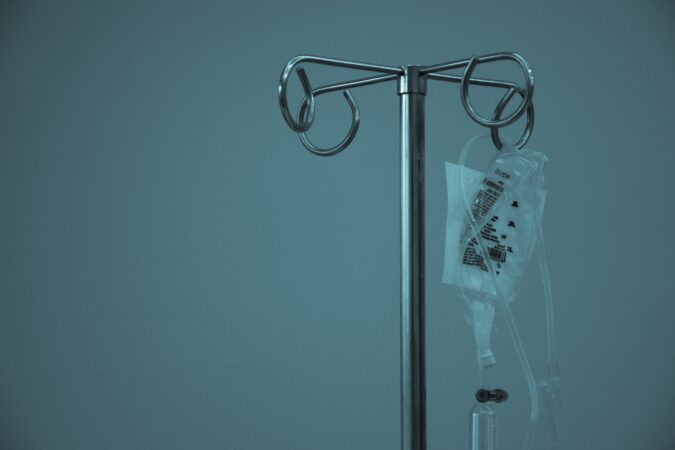Rubbish Removal and Clutter Clearing Tips When Moving House
Moving house is exciting and offers an opportunity to get rid of lots of rubbish. Use these tips to clear your home and dispose of rubbish responsibly.

Disposing of clinical waste is a highly regulated area to protect anyone who comes into contact with it. Reliable clinical waste disposal is essential for any healthcare organisation to comply with the regulations and keep everyone safe. This includes doctor’s surgeries, dental practices, care homes, and even beauty salons – whether you regularly produce lots of medical waste or need a one-off collection.
We offer a wide range of clinical waste disposal solutions that are quick, safe, and efficient. Our dedicated team are on hand to advise and help you develop the best clinical waste management plan. We provide free clinical waste bins of your chosen type and size, and deal with the full clinical waste disposal – so you simply pay for collection.
Call 0800 211 8390 or contact us online for a quick quote for clinical waste disposal anywhere in the UK.
Get a fast FREE quote for disposal of clinical waste
Reliable clinical waste collections are essential to keep your organisation safe and hygienic. Regular collections reduce the risk of accidents, spills, and exposure of potentially hazardous and infectious clinical waste to employees, patients, and anyone else. Arrange clinical waste collection by licensed waste carriers to get rid of your refuse safely.
We can deliver free bins to store your medical waste – you just cover the costs of clinical waste collection. Our licensed waste carriers will collect your clinical waste bins and clinical waste bags when they’re full at an agreed time and pick-up point. They’ll transport them to a nearby waste management facility for disposal.
Book clinical waste collection wherever you are in the UK and whatever organisation you run – whether it’s a hospital, dental surgery, care home, or beauty parlour. You can arrange regular clinical waste collections on a daily, weekly, or fortnightly basis or we can also arrange ad-hoc collections.

Any producer or holder of potentially dangerous waste has a legal ‘duty of care’ to manage safe and appropriate storage and disposal of hazardous waste. Failing to manage medical waste appropriately can result in heavy fines, disreputability, and potentially immediate business closure.
We can provide your organisation with secure clinical waste bins, bags, and sharps container collection for frequent and safe clinical waste removal. Our extensive knowledge in compliance issues and specially trained team can visit your site when needed – although we can tackle 99% of jobs over the phone.
We’ll help compile a dossier listing your waste items to create a clinical waste disposal solution based on what you need storing and removing. Our dedicated and efficient team of professionals can cover everything from identification and collection to clinical waste disposal and even advise on recycling. We ensure your medical waste is taken care of in a safe way.
Request a free quote for clinical waste removal today to get started. Call 0800 211 8390 to speak to one of our clinical waste experts or fill in the online form for a fast response.
Different types of clinical waste require specific clinical waste bins for their storage and removal. We offer a range of solutions and services for all sectors for the correct and safe storage when disposing of clinical waste.
Whether you need a medical waste bin for your dental practice or sharps bin collection for a care home, hospital, or anywhere else, the wide range of clinical waste bins, clinical waste bags, and containers we can supply ensure your waste is stored and removed properly. Each type of clinical waste bin must only be used for its intended purpose, but you can arrange delivery and collection of more than one of the same or different types.
Find the right clinical waste bin for your business needs.
Almost every business produces some type of clinical waste, you just might not realise it. For example, it’s necessary to have hygiene disposal units for the removal of ladies’ sanitary products, as well as tissues used for blowing noses and more in many businesses. As such, our clinical waste management services suit many different sectors.
However, some of the main businesses that require clinical waste removal on a frequent basis are those dealing with healthcare activities for humans and animals.
It’s quick and easy to organise commercial waste collection for your business.
Simply start by telling us the:
We’ll provide you with a free quote.
When you’re happy with the type, number, and size of free bins, tell us when you need your bins delivering.
Let us know about any access issues where you want the bins delivering – such as locked gates, access codes and times. We’ll get you up and running in no time.
After the free bins arrive at your chosen location, fill them up with the agreed waste type.
Make sure you remain within any weight limits for the specific waste type and bin size.
We’ll arrange waste collection at a time and frequency to suit you and the amount of waste you have.
The Controlled Waste Regulations 2012 for England and Wales defines clinical waste as that occurring from any healthcare activity – including dentistry and veterinary healthcare – or within a laboratory, which may pose a threat to human health or the environment. Clinical waste is that which:
Clinical waste also extends to similar waste from a non-healthcare industry – such as bins containing ladies’ sanitary products in public houses, restrooms, restaurants, hotels, and other places.
Clinical waste can be dangerous for those who come into contact with it. As such, there’s a lot of legislation covering the storage, removal, and disposal of clinical waste. It must be correctly stored, packaged, handled, and collected separately to other waste – following an individual clinical waste management process.
For compliance with legal requirements, all clinical waste needs to be ‘rendered safe’ to ensure any risk or threat is removed. Our clinical waste disposal process adheres to legislation, meaning your waste will be ‘rendered safe’, offering peace of mind.


There are many different types of clinical waste that have the potential to cause infection or disease. These can be generated by all sorts of businesses, not just healthcare providers. Common clinical waste examples for businesses can include:
How clinical waste is disposed of depends on the type of waste you need removing. As a business, the first step is ensuring you store it in the correct clinical waste bins, bags, or containers. Then you need to arrange collection by a certified carrier, who will ensure disposal of clinical waste from your business is done in a safe, legal, and environmentally friendly manner.
At Business Waste we offer a range of clinical waste disposal solutions to help create an appropriate plan for your business. When disposing of clinical waste this includes a combination of:
Most clinical waste is disposed of by incineration. After storing in appropriate clinical waste bins, bags, and containers at the point of production, it’s transported to a high temperature incineration facility. Very high temperatures are applied to the waste, combusting and destroying the organic substances that make up clinical waste materials. Incineration is commonly used for anatomical, cytotoxic and cytostatic, radioactive, and contaminated sharps waste.
An alternative way clinical waste is disposed of is by thermal disinfection systems. Heat is applied to clinical waste to render it non-hazardous, so it can then be recovered, disposed of, or recycled in an alternative way. Clinical waste such as dressings, swabs, and gowns are more likely disposed of via thermal disinfection.

The healthcare industry is responsible for around 4.4% of global carbon missions. While this is not all down to clinical waste, only 15% of healthcare waste is classed as hazardous – meaning there’s lots of opportunity to increase the reuse and recycling of medical waste. Around the world about 16 million injections happen every year, though not every needle or syringe is disposed of properly.
In the UK, the NHS generates around 600,000 tonnes of waste each year – although this includes everything from plastics to food waste, beyond just clinical waste. As well as resulting in millions of pounds wasted, it can have a significant impact on our planet.
I have just signed up for clinical waste services. Dan was very helpful in finding the right services to suit my business needs. The process was quick and easy and the costings are very reasonable.Highland Natal Therapies
Contact our team at Business Waste and we can help you organise national Covid waste collection. Tell us the type of Covid waste you need to get rid of and we will advise on the correct clinical waste bins, bags, and containers to properly remove your waste. We provide collections for:
The clinical waste bins, bags, and containers you need depend on the type of Covid test waste you need disposing.
Rapid testing waste collection
Rapid testing waste is classed under the code EWC 180104. You must segregate rapid testing waste and dispose of it in any of the following:
Lateral flow test kits waste collection
Waste lateral flow testing kits are classed under the code EWC 180107. You must dispose of these in clear plastic bags and a 45L lateral flow bin (larger bin sizes are available).
After collection, the clinical waste disposal procedure depends on the type of medical waste. We have high-temperature incinerators that dispose of some clinical waste accordingly. These operate at a minimum temperature of 1,100°C to destroy it. We also use autoclave and microwave facilities, where appropriate and we have several alternative technology facilities for lower grade wastes.
There are strict guidelines and clinical waste regulations for dealing with medical waste as it has the potential to be extremely dangerous to humans, animals, and the environment.
Read the following FAQs to learn more about each method of clinical waste disposal.
The main process for disposing of clinical waste is thermal treatment – used to treat sharps and infectious waste. It utilises high temperatures to make the waste combustible and no longer harmful. Useful materials are resistant to thermal conditions and go through the process without getting damaged, while the waste material is burned down.
There are a few ways to perform thermal treatment including:
Autoclave procedure
This involves processing chemical waste by exposing it to high levels of heat, steam, and pressure in an autoclave machine. There are two systems of autoclave – batch or continuous flow process.
Hybrid autoclave systems function similarly. However, they’re incorporated with other technologies so they can also function as washers and sterilisers.
Continuous steam treatment systems
This gets rid of the chemical and clinical waste while enhancing specific material properties – such as firmness and resistance to corrosive and abrasive forces.
Frictional heat treatment systems
Heat for waste combustion is generated through impact and friction. The residue is sterilised and later reduced into manageable volume through fine grinding and drying. This method can be used as an alternative to incineration. Studies show it has near-zero negative environmental impact and it significantly reduces the waste quantity.
Incineration
This involves exposing waste to heat to burn its organic components, converting them to ash, gas, and heat. The gas produced is commonly known as flue gas and is treated to rid it of pollutants before releasing it into the atmosphere. The heat can be utilised to generate electric power.
For chemical and liquid waste that falls under clinical waste, chemical methods are often used. Several options are available for medical waste disposal through chemical.
Ion exchange
Unwanted portions of waste are passed through a system where they’re exchanged for other ions with the same charge. This method uses the principle of ion attraction and repulsion. A solid known as a resin is loaded with the desired ions and the liquid with the undesirable ions passes through it.
Undesirable ions are attached to the resin, while the desirable ones release into the liquid. It is most suitable in the treatment of medical liquid waste and the water purification process.
Oxidation and reduction
This involves reduction and oxidation (redox) chemical reactions. The oxidised substance loses electrons, while the reduced one gains electrons. This method reduces the content of biochemical oxygen demand in waste water – reducing its levels of toxicity.
Neutralisation
This is a chemical process that involves making waste less acidic or basic before disposal. A pH probe placed in the waste solution senses the pH levels of liquid waste and sends this information to a pH controller. This results in the injection of acid or caustic as per the interpreted pH.
Precipitation
Precipitation aims to remove unwanted chemical components by singling them out. A precipitating reagent is added to waste material, after which an insoluble matter forms. This makes it easier to separate waste from the rest of the components.
An irradiative method employs microwave technology in pathogen inactivation. It’s typically used for sharps and infectious waste disposal. Recently microwaves have been upgraded for the treatment of bio-hazardous waste with technologies that control the moisture content. The introduction of microwaves in waste management brought about the advantages of minimised energy loss and reduced heating periods.
There are two systems designed for microwaving – batch and continuous microwave technologies:
With biological processes for disposing of clinical waste, enzymes are utilised to break down certain chemical components of waste matter. It’s quite underdeveloped though and rarely used in waste disposal.
Get a fast FREE quote for your clinical waste
Moving house is exciting and offers an opportunity to get rid of lots of rubbish. Use these tips to clear your home and dispose of rubbish responsibly.
Thinking about starting a zero waste store? You’ll need a solid plan and the right equipment. Read this guide for tips when setting up a zero waste shop.